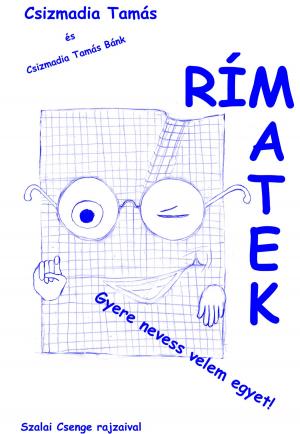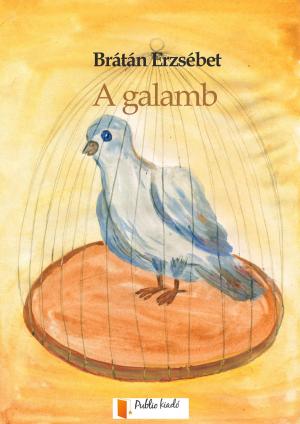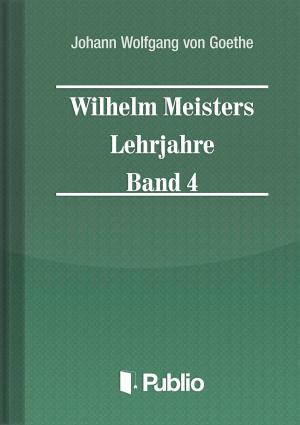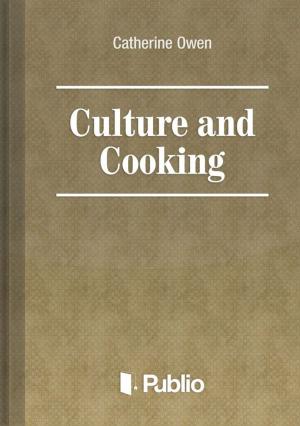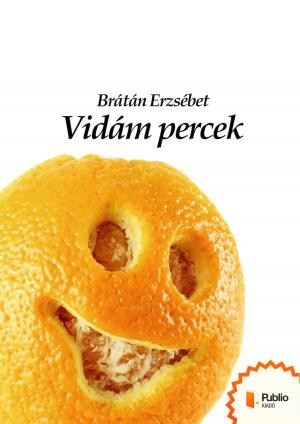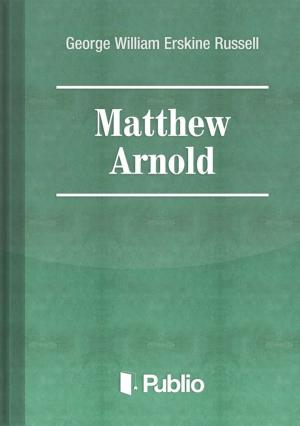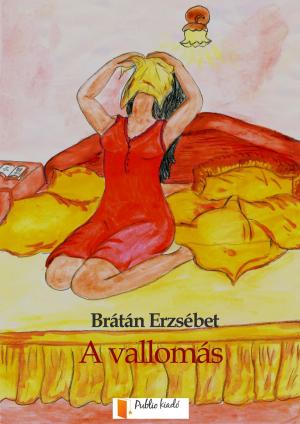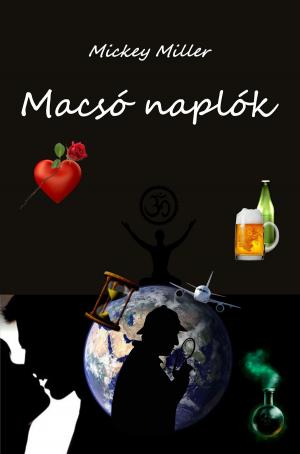| Author: | Káldor Márk | ISBN: | 9781471089787 |
| Publisher: | Publio Kiadó | Publication: | February 10, 2014 |
| Imprint: | Language: | English |
| Author: | Káldor Márk |
| ISBN: | 9781471089787 |
| Publisher: | Publio Kiadó |
| Publication: | February 10, 2014 |
| Imprint: | |
| Language: | English |
In this story; Mr. Ian Who (i.e. Who I am? – vs. „I am, That (It) I am”) is the main character. An evil figure. He is maybe just a ’complex psycho’ /criminal–former psychiatrist, but nevertheless… we cannot measure his feature so easily/, maybe just a suffering man, maybe the evil itself… Or a bit, all of these.
Or maybe Mr. Ian Who is only the temporal creature of Man’s sorrow? (I.e. The Man itself.) Did he kill her wife or the War did? Let the reader, listener to decide. He is searching for himself, but no way to find ’somewhat’. He is too harsh, against the Creator and Mankind. He feels too – knows himself exactly as a ’rational’ –, but a bit late. The visions of Man, Margot, Child… they are innocents and suffer, but not victims.
Margot is a bit bizarre woman (this time and not only and not exactly and not always…, just thinking strange, because of the unquestioning and unconventional love of Man is not impulsive or understandable in times of rejections), the Child is the most and always positive character (here we can totally agree with Mr. Ian Who). The believer and ’blessed’, the most ’lovable’. She is able to mark when Mr. Ian Who was behind his Father’s ’mask’. All of all, the other women have their portrays underlined, negative a bit… the manly figures are more balanced. The Family has historic chance to live, to love, to be themselves. Of course, their life is full of sadness. Seems. Truly, they have everything. They have faith in love, they have found each other. They are capable to love. Being in love, being beloved. The sounding of words, philosophical language games, consonants… the biblical phrases, allusions and the ironical situations, rythm and ’comeback’ of expressions… e.g.| a 12 yrs. old child or a ’branch’ of prostitute is not a philosopher–partner normally…, but this time… – textuality wants to make the reader, listener to see, how remarkable and smashing the human being is, how complicated to define.
Of course, it does in the aspect of love. Not a faith–story, not a romance, but faith can lay at the background… Names, some well known quotations may rely. To meet, usage of language, importance of language, to be understood… But not at the first sight, not for everyone and not by all. In this way, it may be an emotional–realistic story at the same time. Realistic, because shows us the truth about different habits and behaviour, emotional and faithful, because points to, nothing can be, can live without faith and true emotions. The last momentum of the first chapter, the monologues of Man, exactly puts he (us) back to the Beginning. The last, narrative sentence in the first scene is a bit complex. We have only one real solution, that; she made her Dad’s senses, dreams and remembrance aroused, for the Mother. For the Mankind. Selfless love.
As it was happening at the Resurrection, or what Jeshua did at Pilate. Sacrificed. Or ’that’ Margarita (or Faust’s Gretchen/Margarita) at Bulgakov Story. So, Margot is undoubtedly, a ’perfectual’ descendant of Margarita, descendant of womenkind, or the ’later’ Margarita herself. So, this story is about the self–sacrifiction (too). Love is full of self–sacrifice. The Child’s (i.e. Jeshua’s real humble and the girl’s feinted naivity mixed with real humble) behavior, servility helped them out from the hands of evil. (Of course, the girl cannot be exactly the same as the genuine portrayal.
Although, either cannot live without ’Father’ as well, but she could not let Him go, because of worldly needs. ’Only–human–needs’. And it is normal. It makes ’us’ ’different’.)
So, on this way, – after this… let’s say… philosophical analysis/first part–second part–third part/provement – love, real humble and a bit of – not malicious – ironical– (philosopher) naivety is the only way to live, to survive for/from(?) the Mankind.
In this story; Mr. Ian Who (i.e. Who I am? – vs. „I am, That (It) I am”) is the main character. An evil figure. He is maybe just a ’complex psycho’ /criminal–former psychiatrist, but nevertheless… we cannot measure his feature so easily/, maybe just a suffering man, maybe the evil itself… Or a bit, all of these.
Or maybe Mr. Ian Who is only the temporal creature of Man’s sorrow? (I.e. The Man itself.) Did he kill her wife or the War did? Let the reader, listener to decide. He is searching for himself, but no way to find ’somewhat’. He is too harsh, against the Creator and Mankind. He feels too – knows himself exactly as a ’rational’ –, but a bit late. The visions of Man, Margot, Child… they are innocents and suffer, but not victims.
Margot is a bit bizarre woman (this time and not only and not exactly and not always…, just thinking strange, because of the unquestioning and unconventional love of Man is not impulsive or understandable in times of rejections), the Child is the most and always positive character (here we can totally agree with Mr. Ian Who). The believer and ’blessed’, the most ’lovable’. She is able to mark when Mr. Ian Who was behind his Father’s ’mask’. All of all, the other women have their portrays underlined, negative a bit… the manly figures are more balanced. The Family has historic chance to live, to love, to be themselves. Of course, their life is full of sadness. Seems. Truly, they have everything. They have faith in love, they have found each other. They are capable to love. Being in love, being beloved. The sounding of words, philosophical language games, consonants… the biblical phrases, allusions and the ironical situations, rythm and ’comeback’ of expressions… e.g.| a 12 yrs. old child or a ’branch’ of prostitute is not a philosopher–partner normally…, but this time… – textuality wants to make the reader, listener to see, how remarkable and smashing the human being is, how complicated to define.
Of course, it does in the aspect of love. Not a faith–story, not a romance, but faith can lay at the background… Names, some well known quotations may rely. To meet, usage of language, importance of language, to be understood… But not at the first sight, not for everyone and not by all. In this way, it may be an emotional–realistic story at the same time. Realistic, because shows us the truth about different habits and behaviour, emotional and faithful, because points to, nothing can be, can live without faith and true emotions. The last momentum of the first chapter, the monologues of Man, exactly puts he (us) back to the Beginning. The last, narrative sentence in the first scene is a bit complex. We have only one real solution, that; she made her Dad’s senses, dreams and remembrance aroused, for the Mother. For the Mankind. Selfless love.
As it was happening at the Resurrection, or what Jeshua did at Pilate. Sacrificed. Or ’that’ Margarita (or Faust’s Gretchen/Margarita) at Bulgakov Story. So, Margot is undoubtedly, a ’perfectual’ descendant of Margarita, descendant of womenkind, or the ’later’ Margarita herself. So, this story is about the self–sacrifiction (too). Love is full of self–sacrifice. The Child’s (i.e. Jeshua’s real humble and the girl’s feinted naivity mixed with real humble) behavior, servility helped them out from the hands of evil. (Of course, the girl cannot be exactly the same as the genuine portrayal.
Although, either cannot live without ’Father’ as well, but she could not let Him go, because of worldly needs. ’Only–human–needs’. And it is normal. It makes ’us’ ’different’.)
So, on this way, – after this… let’s say… philosophical analysis/first part–second part–third part/provement – love, real humble and a bit of – not malicious – ironical– (philosopher) naivety is the only way to live, to survive for/from(?) the Mankind.

